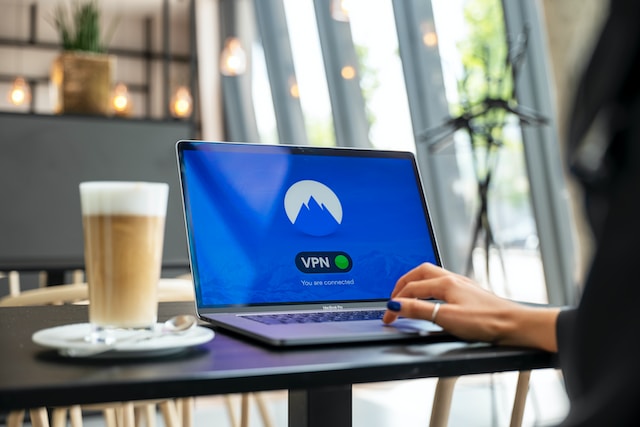Blocked websites are a common challenge in the online world, and almost everyone encounters this issue at some point. Facing access restriction problems when opening a blocked website can be troublesome.
The good news is that you can bypass website restrictions with the right steps. In this guide, we will discuss five proven approaches to unblock websites, regardless of your location.
Why Access to a Website Might Be Restricted: Common Reasons for Blockage
The site is blocked when the “Access Denied or This site can’t be reached” message pops on your screen. The frustrating message on your gadget’s screen indicates that someone might intentionally prevent you from accessing a particular website.
Below are common reasons that may block a website for you:
1. Blocked at Work or School
At work or school, they block some websites to help everyone stay focused and get more work done. Schools do it to keep students safe from inappropriate stuff and to stop computer problems.
Employers block websites to secure personal data and prevent security issues, like malware leaking sensitive information. They don’t want their secret company information to be shared or leaked on other websites.
2. Government-Imposed Blocks
Governments aim to maintain a positive image among their citizens, so they often block websites that could share embarrassing or bad things about them. They do this to stop people from discovering information they don’t want them to know.
Governments may also globally block online content for the following reasons:
- To protect children from inappropriate material,
- To prevent copyright infringement
- To ensure national security.
3. Restricted by Your Internet Service Provider (ISP)
Your Internet Service Provider (ISP) often blocks websites because they might have illegal or pirated stuff. It happens more frequently in different countries due to internet censorship.
The ISP does this to stop web traffic that breaks local laws. Some people might not even know they are blocked because these restrictions are meant to keep your browsing safe. But sometimes, ISPs block sites to protect their own interests.
4. Geographic Restrictions
Websites often restrict visitors based on their location, especially on streaming services like Netflix, Disney+, YouTube, etc. The reason is that these websites have to follow rules about where they can show their content. These rules come from agreements with different countries and legal systems.
Furthermore, some restrictions are imposed due to licenses, copyright rules, and complex laws. For example, gambling websites may only be accessible in specific regions due to local laws.
5 Proven Ways To Unblock Websites
You might be annoyed to see a displeasing notification on the screen saying, “This site can’t be reached,” whenever you try to open a website to get some insightful info. The reason is that the website has blocked your access.
But no worries, we will share some tried-and-true methods to access blocked websites. Use the following 5 strategies to unblock websites quickly.
1. Use a Reliable VPN Service
Using a reliable VPN is a great way to unblock websites. It works by directing your internet traffic through a secure server. It helps you get around restrictions put in place by Internet Service Providers or other authorities.
A VPN acts like a virtual tunnel. It makes it easier to navigate through online barriers and access various websites. The Virtual Private Network works efficiently whether you are on a desktop, laptop, or mobile device.
Best VPNs to Unblock Websites
- NordVPN
- IPVanish
- Surfshark
- Atlas VPN
- ExpressVPN
2. Unblock Websites Through a Proxy Server
A proxy server operates similarly to a VPN, helping you unblock websites without revealing your identity .Like VPNs, proxies conceal your actual IP address from the website and vice versa. They hide your online activity from government, workplace, or university surveillance.
Proxies can unlock some restricted pages based on location, but they might not be effective with major streaming services like Netflix. While proxies offer some advantages, there are also drawbacks compared to VPNs.
Unlike a VPN, you can only achieve this on one tab or device, and it doesn’t encrypt your data. Moreover, proxies are less secure, but their accessibility and cost-effectiveness make them advantageous.
3. Utilize URL Shortener
URL shorteners change the web address. It can help you access a website through an unrecognizable, shortened URL. The shortened link differs from the original, reducing the chance of being tagged as restricted.
When blockers don’t identify the URL as prohibited, you have a higher chance of visiting the site. Follow the steps below to unblock websites using shortened URLs:
- Copy the URL you wish to visit.
- Go to a reliable URL shortener website.
- Paste the URL in the box labeled “Shorten Your Link.”
- Copy the shortened URL.
- Paste the shortened URL into your browser.
4. Opt for an IP Address Instead of a URL.
Sometimes, blockers may block the website address (URL) instead of the IP. If this happens, you can unblock the website using its IP address. A URL is the web address you see in your browser’s address bar, e.g., https://unknownwebsite.com.
Alternatively, an IP address is a unique set of numbers for the server hosting the website. To access the site, simply paste the IP address into your browser’s address bar. You can visit the website unless your network administrator has also blocked the IP address.
5. Access Restricted Sites Using the Tor Browser
The Tor browser is a free, open-source web browser designed to conceal a user’s location and online activities. It is a helpful tool for staying anonymous on the internet. Tor offers networks that are open and free for anonymous web browsing.
Unlike regular browsers, Tor lets you explore the internet without needing a specific website address beforehand. It also provides strong data encryption and access to many servers. Tor’s primary goal is to help users bypass censorship that might limit access to specific websites.
Using the Tor browser can be a helpful way to unblock websites and protect your online privacy.
Is it legal to access blocked websites using alternative methods?
Whether unblocking a website is lawful or not is a highly debated question. Nonetheless, it depends on the purpose for which you want to access a website. If it is not for a legal reason, then accessing it can land you in hot water.
The legality of a website also depends on why the website is blocked, your local laws, and sometimes security needs. For example, if a workplace or school limits access for valid reasons, like safeguarding exam papers, reaching that content would be unlawful.
On the other hand, attempting to unblock a school website for innocent reasons, such as overcoming location restrictions or accessing the site denied due to an error, might be acceptable. However, accessing content blocked for legal reasons in your location could be against the rules.
Final Words
Unblocking websites is easier than you might think. We have discussed simple and reliable methods for accessing restricted websites and explained why these sites might be blocked. Now, the choice is yours on which method you prefer.
Whether you are in a country with many internet restrictions or just want to access content unavailable in your area, having different options to unblock sites is empowering.







